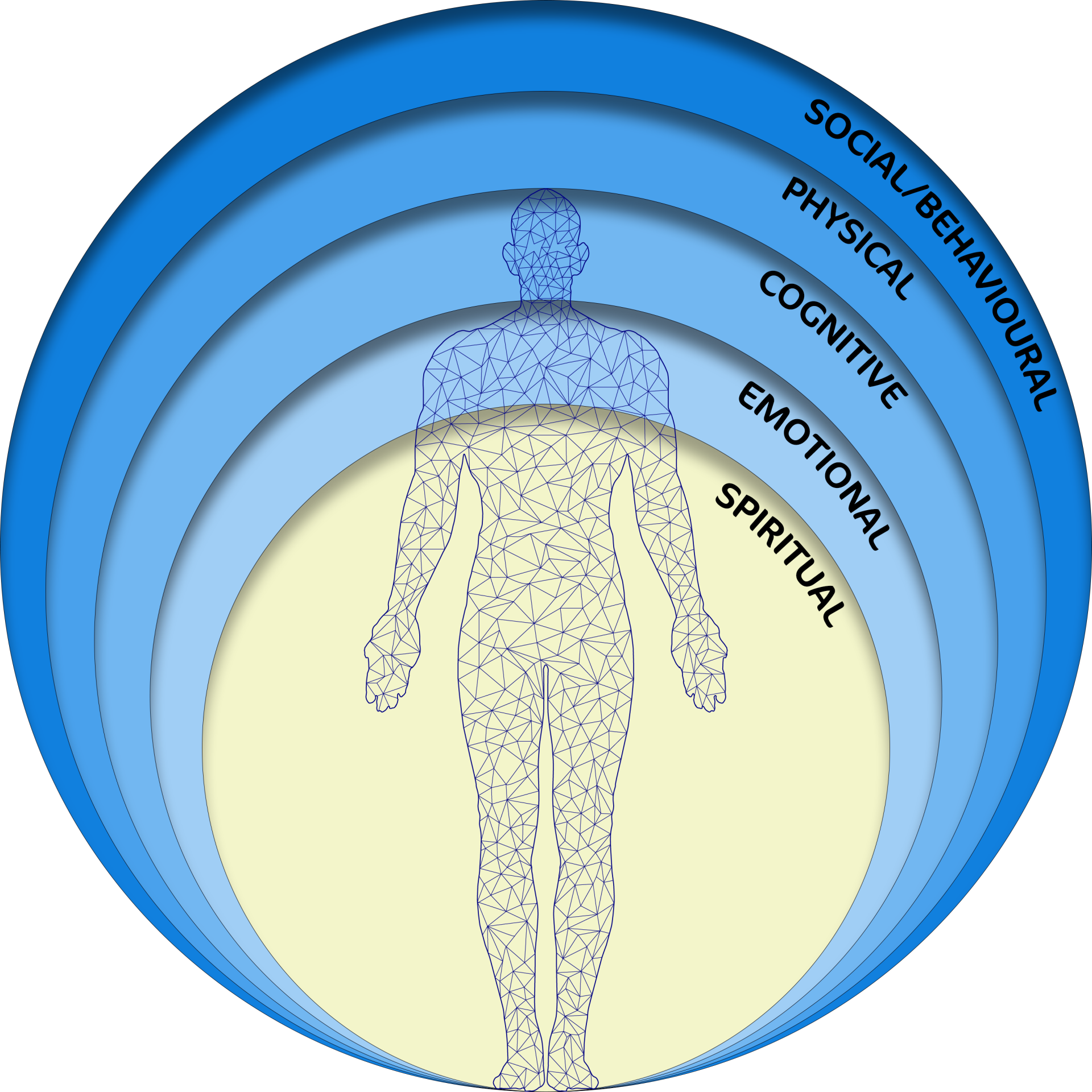Resolve Your Grief: Transform Your Lonely, Depressed State into a Peaceful, Loving New You
Grief is the biggest trauma we can experience. With the help of the FLOW Method, you can journey through the grieving process by developing your own inner trauma-resolution tools and build a new, happier and more joyful identity.

Understanding Grief: A Normal Response to Loss
Grief is a collection of intense symptoms that arise from the biggest trauma a human being can experience—the loss of a loved one. It’s essential to recognize that grief is normal and not a disease or disorder. Different people experience grief with varying intensity and for different lengths of time. When we form a bond with another person and that bond is broken, we begin experiencing symptoms on every level of our being—emotional, physical, social, and spiritual. The death of a loved one is a significant trauma, and the symptoms of grief, such as depression, anger, guilt, sleep disturbances, social withdrawal, and questioning the worth of life, are normal reactions to this profound loss.
The Impact of Grief on Daily Life
Grief affects every aspect of a person’s life, manifesting in various symptoms across different levels. Emotionally, grief can bring intense sadness, anger, and guilt. Physically, it may cause exhaustion, changes in appetite, and sleep disturbances. Socially, grief often leads to withdrawal from activities and difficulty maintaining relationships. Spiritually, it can cause questioning of beliefs, feelings of being punished, or a crisis of faith. Since grief is a complex trauma, addressing these symptoms individually is crucial. If these symptoms persist, they can lead to additional mental and health problems, further complicating the grieving process.
Addressing the Complex Trauma of Grief
To effectively deal with grief, it’s essential to address the underlying trauma that causes it. This involves looking at each emotion—what is causing guilt, what is causing anger, etc.—and addressing them one by one. Skills and techniques to manage these emotions are available and can significantly help in the healing process. For those currently experiencing grief, know that solutions exist, and with the right approach, it is possible to find relief and regain a sense of normalcy. By addressing and resolving the individual components of grief, one can move towards healing and eventually find joy and meaning in life again, even after such a profound loss.
How FLOW Method Helps with Grief
Grief: The Ultimate Trauma
In the FLOW Method, grief is acknowledged as the ultimate form of trauma, a deeply traumatic experience that shakes the foundation of your existence. The FLOW Method helps you create a set of trauma-resolution tools that you can apply to address any trauma, including the loss of a loved one. When you apply the method, the negative emotions will be resolved, leaving only the feeling of pure love in you heart.
Addressing Grief on Every Level
Grief doesn’t just touch one part of you; it envelops your entire being—physical, emotional, cognitive, social, and especially, spiritual. Many struggle with grief because while they tend to the first four levels with known coping strategies, the spiritual level often remains unaddressed. This isn’t about religion; spirituality in the FLOW refers to your inner level of ‘good’ vs ‘bad’.
Dealing with the Root Cause of Grief
Sadness, anger, guilt and other negative emotions accompany us on our grief journey. These emotions are signal of what specifically needs to be addressed in order for us to heal and the FLOW Method provides you with a way to resolve those feelings so that you get past the pain and move towards the future of only positive feelings towards your loved one who crossed over.
Embracing Transformative Power of Grief
The FLOW Method recognizes the profound and transformative power held within the intense emotions of grief. It’s a journey that, when fully embraced, has the potential to reshape and redefine who you are. This process isn’t about healing in the conventional sense, where the aim is to return to your previous state of being. Instead, FLOW sees transformation as the true goal. Grieving, in its full intensity and depth, can act as a catalyst, morphing your current self into a new version of you—one that carries the love and memories of your lost one into every future moment.
How FLOW Method Can Benefit You:
- Emotional Stability: Regain emotional stability, experience a greater range of emotions and regain your ability to experience joy and happiness.
- Reconnection: Rediscover the desire to connect with others and build social relationships.
- Sense of Purpose: Reflect on the meaning of life and develop a renewed sense of purpose and direction.
- Resilience: Develop resilience and a greater capacity to cope with adversity, and move forward with a stronger ability to navigate future challenges.
- Growth and Transformation: Grief is a transformative experience. Grow emotionally and spiritually and develop a deeper appreciation for life and a greater sense of empathy towards others.
Cognitive Behavioral Therapy (CBT) – CBT is a form of psychotherapy that addresses negative thought patterns and behaviors associated with grief.
Advantages: CBT offers practical strategies for managing grief-related stress and anxiety, allowing individuals to challenge and change unhelpful beliefs about their loss. It is structured and time-limited, providing clear goals and outcomes.
Disadvantages: CBT may not fully address the emotional depth and complexity of grief, focusing more on cognition than feeling. Its structured nature might not suit those who need a more open-ended exploration of their emotions.
Grief Counseling – grief counseling provides a safe space to express feelings and thoughts related to a loss, guided by a trained professional.
Advantages: It offers personalized support, helping individuals process their emotions and navigate the grieving process. If a grief counselor assesses that your grief as complicated, they may recommend therapy.
Disadvantages: The effectiveness of grief counseling can heavily depend on the counselor’s expertise and the individual’s willingness to engage. It may not be easily accessible to everyone due to cost or availability.
Support Groups – support groups bring together individuals who have experienced similar losses, offering a community of understanding and empathy.
Advantages: They provide a sense of belonging and shared experience, which can be incredibly comforting. Support groups also offer diverse perspectives and coping strategies from peers.
Disadvantages: Some people may find sharing in a group setting intimidating or overwhelming. The advice and coping mechanisms shared may not be tailored to each individual’s needs.
Mindfulness and Meditation – these practices involve focusing on the present moment and accepting feelings without judgment, fostering a sense of peace.
Advantages: Mindfulness and meditation can reduce symptoms of anxiety and depression associated with grief, promoting overall well-being. They can be practiced independently or with guidance, offering flexibility.
Disadvantages: These practices require discipline and may not appeal to or benefit everyone equally. They might not be sufficient for those needing more direct coping strategies or emotional processing.
Art and Music Therapy – these therapies use creative expression as a means to explore and process feelings of grief and loss.
Advantages: Creative therapies offer a non-verbal outlet for expressing complex emotions, making them accessible to those who struggle to articulate their feelings. They can be particularly beneficial for children or those resistant to traditional talk therapies.
Disadvantages: The effectiveness of art and music therapy can vary greatly depending on personal interest and engagement in the creative process. They may be viewed as less conventional and thus less appealing to some individuals.
Compare the FLOW Method to Current Approaches for Grief:
Comprehensive Vs Partial Approach:
While Cognitive Behavioral Therapy (CBT) primarily focuses on the cognitive level, aiming to correct ‘maladaptive’ thoughts and behaviors associated with grief, grief is not only mental but also an emotional process involving intense emotions. In the FLOW Method, there’s no ‘wrong’ way to think or feel about your loss. FLOW recognizes that grief touches every part of your existence – physical, emotional, cognitive, social, and spiritual. By addressing all these levels, FLOW supports a more comprehensive healing process.
Normalizing Grief Vs Pathologizing it:
In traditional grief counseling, certain patterns of grieving, labeled as ‘complicated grief,’ might lead to referrals for CBT to address supposed ‘maladaptive’ beliefs or avoidance behaviors. FLOW Method diverges from this path by treating every expression of grief as unique and inherently purposeful. There are no wrong beliefs to correct; instead, there’s a journey to understand and integrate your loss into your life’s narrative meaningfully.
Focus on Experiencing Vs Distraction
Common advice in grief counseling includes engaging in activities which can be ways to distract yourself from the pain of loss. The FLOW Method, however, places significant importance on actually experiencing your grief and the emotions that come with it in a safe manner. Rather than encouraging distraction, FLOW guides you to face and process these feelings directly.
Purposeful Processing vs. Moving On
The conventional aim in grief counseling and therapy is often about ‘moving on’ from your loss while still honoring the memory of the loved one. FLOW takes a different stance, viewing grief not as something to be ‘moved on’ from but as a necessary and purposeful process. This perspective fosters a deeper understanding and integration of your loss, allowing for true healing.
Identity Transformation Vs Identity Change
In grief counseling, changes in identity might be addressed somewhat superficially, such as transitioning from being a spouse to a widow. FLOW, however, makes your identity a central focus. The method explores your identity in depth, beyond just your current role change, facilitating a transformative journey towards understanding who you are in the aftermath of loss.
More About FLOW Method for Grief
Addressing Grief and Beyond
The Five Level Wellness (FLOW) Method, a comprehensive approach to mental wellness, was developed to assist individuals struggling with a range of emotional challenges, including grief, depression, anxiety, anger, PTSD, and more. At the heart of these issues often lies trauma, with the loss of a loved one being one of the most profound forms of trauma. The FLOW Method offers a pathway to not only understand and accept these traumatic events but also to find a deeper sense of healing and purpose beyond the pain.
Comprehensive Approach to Healing
The FLOW Method distinguishes itself through its comprehensive approach, recognizing that true healing encompasses the physical, emotional, cognitive, social, and spiritual dimensions of an individual’s existence. It understands that grief impacts all these levels and offers strategies to bring them into harmony. If you are mourning a loss, this approach provides a framework to explore where grief fits into a bigger picture of your life, enabling a comprehensive healing process.
Transforming Perceptions and Finding Meaning
The FLOW Method helps you in shifting perceptions, allowing you to view your experiences, including grief, through a lens of purpose and meaning. It guides you in redefining your relationship with loss, moving from a place of despair to one of understanding and acceptance. This transformative journey allows for a re-examination of life’s challenges, enabling those who have lost a loved one to find solace in the broader context of their existence.
A Path to Lasting Change and Well-being
Unlike approaches that focus on temporary relief, the FLOW Method aims for lasting change. It provides tools and strategies allowing you to integrate your experiences of loss into your life in a meaningful way, promoting long-term well-being. If you are mourning a loved one, the FLOW Method offers a pathway not just to cope with your loss, but to grow and find a renewed sense of purpose and joy in life.
7-Week Group Course
Your journey begins with a 7-week group course where you, together with other 10-12 participants will work on expanding your levels, building your trauma-resolution tools and practicing the techniques of the method in a safe and supportive environment. Your instructor will guide you through helpful exercises and 'case-study' type of scenarios where you can practice using the skills you've learned before applying them to your own life.
Embracing Your New Tools: Transforming Your Life
After completing the 7-week group course, you are now equipped with the personal trauma-resolution tools you've developed and the techniques you've learned. Now, it's time to apply these tools to resolve your past traumas, one by one, using the FLOW Method. With each trauma you address, you will start to feel better and experience the transformative benefits of the method. Your journey to freedom has just begun, and you will continue to grow and heal, gaining strength and resilience with each step.
Teaching Opportunities
If you're inspired by your transformation and wish to help others, there's an opportunity to become an FLOW Instructor. This allows you to share the powerful impact of the FLOW Method and assist many others who are struggling with mental health issues.
Frequently Asked Questions about FLOW for Grief
1. I've been told I have complicated grief because it's been years and I still can't move past my partner's death. How can the FLOW Method help me when it feels like my grief is a never-ending cycle?
The FLOW Method recognizes the profound depth of your pain and the complexity of navigating through complicated grief, especially when it feels like you’re caught in an endless cycle of sorrow following your partner’s death. It’s important to understand that you’re not alone in feeling ‘stuck’—many people find traditional coping strategies insufficient. Common strategies such as immersing oneself in work, avoiding places that remind you of your loved one, or even trying to keep busy all the time might offer temporary distractions but don’t allow for the deep emotional processing needed.
The FLOW Method approaches grief differently. Instead of pushing you to ‘move on’—an idea that undermines the significance of your loss and your love—it aims to help you find purpose and meaning in your experiences, both shared with your loved one and in the life you continue to lead. This method doesn’t see grief as a loop to be escaped but as a journey to be navigated with compassion, understanding, and patience.
By valuing your emotions and guiding you through a process to fully experience and understand them, FLOW provides a pathway to transform your grief into something that can coexist with joy, memories, and ongoing life. The goal is not forgetting or moving past your partner’s death but integrating this profound loss into your being in a way that honors your loved one and allows you to continue growing and finding meaning in life. The FLOW Method is here to support you through this deeply personal and unique process, every step of the way.2. Since I lost my sibling, I've sunk into a deep depression alongside my grief. Can the FLOW Method address both of these issues together, and how?
It’s entirely natural and not uncommon to find yourself grappling with deep depression alongside your grief after the loss of a sibling. The FLOW Method understands and acknowledges that depression can be a significant part of the grieving process. Society often suggests that we shouldn’t feel depressed following the death of a loved one, but the reality is that we all grieve differently. If your grief manifests as depression, it doesn’t mean there’s something wrong with you; rather, it’s a testament to the deep connection and love you shared with your sibling. In this light, your depression is a form of honoring their memory.
The FLOW Method approaches both grief and depression together, recognizing them as interconnected aspects of your emotional journey after loss. Instead of trying to suppress or directly combat the symptoms of depression, FLOW aims to understand and address the root causes of your pain and sadness. Your current feelings of depression are seen as one way you are honoring your loved one’s life and legacy. While grief counseling might suggest engaging in legacy projects or creating memorials as a way to cope, FLOW introduces a different perspective.
FLOW encourages exploring internal ways to honor your sibling’s life and make sense of their death, beyond just external expressions. This approach helps you to internalize their legacy, finding a personal and profound connection to their memory that lives on within you. By focusing on building an Inner Support Structure, FLOW aids in navigating your emotions in a way that respects your unique grieving process, allowing you to find peace and purpose in the midst of sorrow. It’s about understanding their life and death in a way that resonates with you deeply, providing a path to healing that’s both meaningful and sustaining.3. I've attended grief counseling sessions, but it didn't seem to help much. What makes the FLOW Method different, and might it work for me?
Grief counseling has undoubtedly helped many people navigate their way through the pain of loss. Yet, it might feel somewhat lacking for others, as it often adopts a one-size-fits-all approach, focusing on standardized stages of grief and prescribed coping mechanisms. This method tends to address your grief as an isolated issue, potentially overlooking the intricate web of your unique personality and life experiences. It’s true, counselors work to introduce the concept of finding meaning and purpose through techniques like storytelling, legacy projects, and rituals, aiming to help you process your loss. However, this approach may not resonate with everyone, especially if it feels like it doesn’t fully acknowledge the depth of your personal journey or the entirety of your being.
The FLOW Method stands apart in its fundamental approach to grief and loss. Instead of primarily teaching you new ways to cope, FLOW delves into the very core of your suffering. It recognizes that the coping strategies you’re currently using are not the issue; the focus is on addressing the root cause of your pain. By doing so, FLOW seeks to render specific coping strategies unnecessary, as resolving the core issue naturally alleviates the need for them.
What truly distinguishes the FLOW Method is its emphasis on the “big picture” – understanding where your experience of loss fits within the broader tapestry of existence. It’s about more than just finding ways to live with grief; it’s about exploring who you are, your identity, and how your personal narrative intertwines with the universal experiences of love, loss, and existence. FLOW guides you through a process of seeing how ‘the pieces fit’, helping you to discern the sense and purpose behind life’s events, including your parent’s passing.
The FLOW Method isn’t just about coping better; it’s about transformative understanding. It’s about recognizing that your grief, as profound and as personal as it is, forms part of a larger story. Through FLOW, you’re encouraged to explore and embrace your identity and journey, finding where you belong in the grand scheme of things. If you’re seeking a path that considers you as a whole and unique individual, helping you to integrate your experience of loss into a meaningful understanding of life, then the FLOW Method might indeed be the approach you’re looking for.4. Losing my child has been the most devastating experience of my life. Is the FLOW Method equipped to help parents specifically deal with such an unnatural order of loss?
Losing a child is an indescribably painful experience, one that seems to defy the natural order of life. Whether your child was young or had reached adulthood, the expectation that we outlive our children makes their loss feel incomprehensible and deeply unnatural. It’s a type of sorrow that challenges every notion we have about life, future, and the way things are ‘supposed’ to be. The FLOW Method recognizes the unique and profound nature of this grief and is indeed equipped to help parents navigate through this devastating terrain.
The pain of losing a child is compounded by the intense bond and love that typically defines the parent-child relationship, often perceived as stronger than any other form of love. This loss not only represents the loss of a beloved being but also the loss of the future we envisioned with them—dreams, milestones, and shared moments that will never come to pass. It’s a shattering of the world as we know it.
The FLOW Method approaches this heartrending situation with profound sensitivity and understanding, aiming to help you make sense of this seemingly senseless event. It guides you in gently shifting your perspective towards the core of your existence in this world, which is ultimately centered around ‘you’. In the throes of such a loss, you might feel diminished, as if your identity as a parent has been irrevocably altered or even erased. However, FLOW helps you see that, in essence, your journey is about understanding who you are and who you are becoming in the wake of this profound loss.
Your love for your child, and the bond you shared, is seen within the FLOW Method as a crucial element in shaping your path forward. This love is not something to be left behind or forgotten; instead, it is to be recognized as a powerful force in the construction of your inner core. The FLOW Method does not ask you to sever this bond but to use it as a transformative tool, aiding in the creation of a resilient and meaningful core from which you can continue to grow. Through this guided process, FLOW aims to help you find a way to honor your child and the love you hold for them, integrating this love into the essence of who you are, thus guiding you towards healing and renewed purpose.







